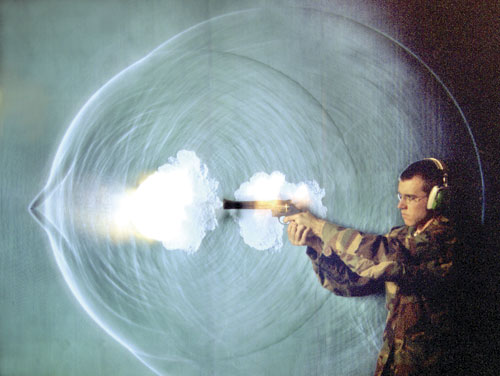 |
MA8103
Nonlinear partial differential equations The course will be given every other year. Next time: Spring 2010. |
|
In the course we study a class of nonlinear partial differential
equation called hyperbolic conservation laws. These equations are
fundamental in our understanding of continuum mechanical systems,
and can be used to describe mass, momentum and enery conservation in
mechanical systems.
Examples of the use of conservation laws you may have seen in TMA4305 Partial differential equations and TMA4195 Matematisk modellering as well as in courses in physics and fluid mechanics. The equations share many properties that make numerical computations difficult. The equations may, for instance, develop singularities in finite time from smooth initial data. These equations have been extensively studied due to their importance in applications. Examples of applications include weather forecasting, flow of oil in a petroleum reservoir, waves breaking at a shore, and in gas dynamics. |
In the course we will focus on fundamental properties of these
equations and will discuss numerical methods for the computation of solutions.
Knut-Andreas Lie has made a
web site
containing some examples of applications as well as some theory.
There is extensive research activity in this area at the Department, and the course is well suited as a start of project, a master thesis or a PhD study. The course is useful for students from other departments who need to study numerical methods applicable to these equations. The course will be given by Helge Holden <holden@math.ntnu.no>. The text book is Front Tracking for Hyperbolic Conservation Laws av H. Holden og N. H. Risebro. |

